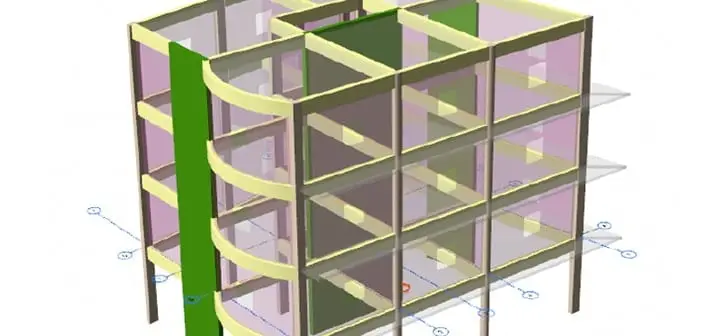
Equivalent Lateral Force Analysis According to UBC 97
Summary
Case Study: Equivalent Lateral Force Calculation for a 4-Story RC Building (UBC 97)
This case study provides a detailed explanation of the equivalent lateral force calculation for a 4-story residential reinforced concrete (RC) building. Using the 1997 Uniform Building Code (UBC 97), the process outlines systematic methods for assessing seismic forces. These calculations are essential for ensuring structural safety and compliance with building codes, especially in seismic regions.
Steps in Equivalent Lateral Force Calculation
Defining Structural Characteristics
To begin with, the building’s height, weight distribution, and stiffness are defined. These parameters establish the foundation for accurate seismic calculations.Seismic Parameters
Next, UBC 97 parameters such as seismic zone factors, soil conditions, and importance factors are applied. These inputs are crucial for determining the base shear of the structure.Base Shear Distribution
After calculating the base shear, it is distributed across the building’s height. The distribution accounts for the stiffness and weight of each floor, ensuring accurate lateral force application.Verification
Finally, the calculated forces are verified to ensure compliance with UBC 97 standards. This step is critical to confirm that the building meets safety requirements.
By following this process, engineers can be confident that the lateral force resistance of the building adheres to established safety standards.
Real-World Applications
ProtaStructure simplifies seismic force calculations, allowing engineers to focus on creating safe and efficient designs:
- Explore Real Projects: For example, visit our Projects Gallery to see real-world applications of ProtaStructure.
- Customer Success Stories: Additionally, explore customer success stories to learn how ProtaStructure optimizes workflows for seismic design.
Conclusion
In conclusion, accurate equivalent lateral force calculation is crucial for the seismic safety of buildings. By following UBC 97, engineers can evaluate and design RC buildings effectively. Moreover, ProtaStructure automates this process, enhancing accuracy and efficiency, making it an indispensable tool for seismic engineering.







